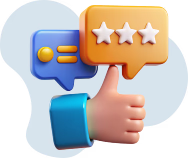What is a Hypothesis in Research?
A hypothesis is a testable prediction or proposed explanation about the relationship between two or more variables in your research. It's an educated guess based on preliminary research and observations that guides your entire study.
Think of a hypothesis as a roadmap for your research—it tells you where you're going and how you'll get there. Your hypothesis directly informs your research methodology determining which data collection and analysis methods you'll use to test your prediction.
Why is a Hypothesis Important?
A strong hypothesis: - Provides direction for your research methodology - Establishes clear variables to measure and test - Enables you to draw meaningful conclusions from your data - Helps readers understand your research purpose immediately
Pro Tip: A hypothesis is not a question—it's a declarative statement that makes a prediction you can test and potentially prove or disprove through research.
Components of a Hypothesis: The Essential Building Blocks
Every strong hypothesis contains three core components:
1. Independent Variable (IV)
The factor you manipulate or change in your experiment.
Example: Amount of study time
2. Dependent Variable (DV)
The outcome you measure that depends on the independent variable.
Example: Test scores
3. Predicted Relationship
The expected connection between your variables.
Example: "increases," "decreases," "correlates with"
Visual Structure:
[Independent Variable] - [affects/causes/influences] - [Dependent Variable]
Complete Example: "Increasing study time (IV) improves test scores (DV) among college students."
Types of Hypotheses in Research
Understanding different hypothesis types helps you choose the right format for your research paper.
1. Simple Hypothesis
Predicts the relationship between ONE independent and ONE dependent variable.
Example: "Caffeine consumption increases alertness levels."
2. Complex Hypothesis
Involves TWO OR MORE independent or dependent variables.
Example: "Caffeine consumption and sleep duration both affect alertness levels and academic performance."
3. Null Hypothesis (H)
States there is NO relationship between variables. Used in statistical testing.
Example: "There is no significant difference in test scores between students who study 2 hours versus 4 hours daily."
4. Alternative Hypothesis (H)
The opposite of the null hypothesis—states there IS a relationship.
Example: "There is a significant difference in test scores between students who study 2 hours versus 4 hours daily."
5. Directional Hypothesis
Specifies the DIRECTION of the expected relationship (increase/decrease).
Example: "Students who study for 4 hours will score higher than students who study for 2 hours."
6. Non-Directional Hypothesis
Predicts a relationship exists but doesn't specify the direction.
Example: "There will be a difference in test scores between students who study 2 hours versus 4 hours daily."
Comparison Table: Hypothesis Types
| Type | Variables | Relationship | Use Case |
|---|---|---|---|
| Simple | 1 IV, 1 DV | Single relationship | Basic experiments |
| Complex | 2+ IV or DV | Multiple relationships | Advanced research |
| Null | Any | No relationship | Statistical testing |
| Alternative | Any | Relationship exists | Statistical testing |
| Directional | Any | Specific direction | Predictive research |
| Non-Directional | Any | Unspecified direction | Exploratory research |
How to Write a Hypothesis: 5-Step Process
Follow this proven methodology to craft a testable, clear hypothesis for your research paper.
Step 1: Start with a Research Question
Before writing your hypothesis, identify what you want to discover.
Weak Question: "Does social media matter?"
Strong Question: "How does daily social media usage affect sleep quality in teenagers?"
If you're struggling to formulate your initial research question, our guide on how to start a research paper walks you through proven brainstorming techniques for developing focused, researchable questions.
Why it works: Specific, measurable, and identifies clear variables (social media usage - sleep quality).
Step 2: Conduct Preliminary Research
Never write a hypothesis in a vacuum. Research what's already known about your topic.
What to look for: - Existing studies on your topic - Established theories and frameworks - Research gaps you can address - Previous findings that support or contradict your prediction
This preliminary research phase often involves conducting a literature review to thoroughly understand existing scholarship and identify gaps your hypothesis can address.
Example: After researching, you find that blue light from screens disrupts circadian rhythms, supporting your hypothesis direction.
Step 3: Identify and Define Your Variables
Clearly specify what you'll measure and manipulate.
Independent Variable (What you control): - Daily social media usage time (hours)
Dependent Variable (What you measure): - Sleep quality (measured by sleep duration and quality ratings)
Controlled Variables (What you keep constant): - Age group (teenagers 13-18) - Time of measurement (same week)
OVERWHELMED BY THE COMPLEXITY?
Get Your Research Paper Written by Degree-Holding Experts
From topic selection to final citations—our specialists handle everything. Top-grade guarantee.
Step 4: Write Your Hypothesis Statement
Now combine everything into a clear, testable statement.
Writing a strong hypothesis statement requires similar skills to crafting a compelling thesis statement—both demand clarity, specificity, and a clear argument. Here are proven formats you can use:
Hypothesis Format Options:
Format 1: If-Then Structure "If [independent variable changes], then [dependent variable changes]."
Example: "If teenagers reduce daily social media usage by 2 hours, then their sleep quality will improve by at least 30 minutes per night."
Format 2: Declarative Structure "[Independent variable] [relationship] [dependent variable]."
Example: "Increased social media usage negatively correlates with sleep quality in teenagers."
Format 3: Comparative Structure "[Group A] will show [difference] compared to [Group B]."
Example: "Teenagers who use social media for more than 3 hours daily will experience poorer sleep quality than those who use it for less than 1 hour."
Step 5: Refine and Make It Testable
Review your hypothesis against this checklist:
Specific: Are your variables clearly defined?
Testable: Can you actually measure and test this?
Falsifiable: Could the results prove you wrong?
Clear: Would another researcher understand exactly what you're testing?
Relevant: Does it address your research question?
Before: "Social media is bad for sleep."
Too vague, not testable
After: "Teenagers who use social media for more than 3 hours daily will report 20% lower sleep quality scores than those who use it less than 1 hour."
Specific, testable, measurable
20+ Hypothesis Examples by Research Field
Need inspiration for your hypothesis? These examples span multiple disciplines and research approaches. If you're still searching for a research topic, browse our collection of research paper topics organized by field and difficulty level.
Psychology Research Hypotheses
Example 1 (Simple): "Exposure to nature reduces stress levels in urban workers."
Example 2 (Complex): "Regular meditation practice and adequate sleep duration both independently reduce anxiety symptoms and improve focus in college students."
Example 3 (Directional): "Children who engage in 60 minutes of physical activity daily will demonstrate higher concentration levels in classroom settings than sedentary children."
Scientific Research Hypotheses
Example 4 (Biology): "Plants exposed to classical music for 3 hours daily will grow 15% taller than plants in silent conditions over a 30-day period."
Example 5 (Chemistry): "Increasing the temperature of water from 20°C to 60°C will increase the dissolution rate of table salt by 40%."
Example 6 (Environmental Science): "Urban areas with 30% or more tree coverage will record temperatures 5°F cooler than areas with less than 10% tree coverage during summer months."
Social Sciences Hypotheses
Example 7 (Education): "Students who receive personalized feedback within 24 hours will demonstrate 25% higher assignment quality than those receiving feedback after one week."
Example 8 (Sociology): "Communities with higher social media engagement rates will report stronger neighborhood connections but lower face-to-face interaction frequency."
Example 9 (Economics): "Implementing a 4-day work week will increase employee productivity by 20% while reducing burnout symptoms by 35%."
Medical/Health Sciences Hypotheses
Example 10 (Nutrition): "Consuming 30 grams of protein within 30 minutes post-workout will increase muscle recovery rate by 40% compared to delayed protein consumption."
Example 11 (Public Health): "Neighborhoods with accessible walking paths will have 25% lower obesity rates than neighborhoods without pedestrian infrastructure."
Business Research Hypotheses
Example 12 (Marketing): "Email subject lines containing personalization (recipient's name) will increase open rates by 15% compared to generic subject lines."
Example 13 (Management): "Companies with flexible remote work policies will experience 30% lower employee turnover than companies requiring full-time office presence."
Technology Research Hypotheses
Example 14 (Computer Science): "Implementing AI-powered chatbots will reduce customer service response time by 60% while maintaining 85% customer satisfaction rates."
Example 15 (Data Science): "Machine learning algorithms trained on diverse datasets will achieve 20% higher prediction accuracy than algorithms trained on homogeneous data."
Dissertation/Thesis Hypotheses
Example 16 (PhD Level): "There is a statistically significant positive correlation between transformational leadership styles and employee innovation behaviors, mediated by psychological empowerment and organizational learning culture."
Example 17 (Master's Level): "Graduate students who participate in peer review workshops will produce research papers with 30% fewer methodological errors than students who do not participate."
Null and Alternative Hypothesis Pairs
Example 18: - H (Null): "There is no significant difference in customer satisfaction scores between chatbot and human customer service interactions." - H (Alternative): "There is a significant difference in customer satisfaction scores between chatbot and human customer service interactions."
Example 19: - H: "Daily vitamin D supplementation does not affect immune system response in adults aged 40-60." - H: "Daily vitamin D supplementation improves immune system response in adults aged 40-60."
NEED HELP WITH YOUR RESEARCH PAPER?
Save 20+ Hours of Research Time
Comprehensive research from expert writers
If-Then Format Examples
Example 20: "If high school students participate in mindfulness training for 15 minutes daily, then their test anxiety scores will decrease by at least 25%."
Example 21: "If companies adopt transparent communication policies, then employee trust levels will increase by 40% within six months."
Example 22: "If patients use health-tracking apps consistently for 3 months, then their medication adherence rates will improve by 50%."
Hypothesis Format Guide: Which Structure to Use?
| Your Research Type | Best Format | Example Template |
|---|---|---|
| Experimental Research | If-Then | "If [IV changes], then [DV changes]" |
| Correlational Research | Declarative | "[IV] correlates with [DV]" |
| Comparative Research | Comparative | "[Group A] will show [difference] compared to [Group B]" |
| Statistical Testing | Null + Alternative | State both H1 and H2 |
Common Mistakes to Avoid When Writing a Hypothesis
Mistake 1: Writing a Question Instead of a Statement
Wrong: "Does exercise improve mental health?"
Right: "Regular exercise reduces depression symptoms in adults."
Mistake 2: Making It Too Vague
Wrong: "Social media affects people."
Right: "Excessive social media use (4+ hours daily) increases loneliness scores by 30% in young adults aged 18-25."
Mistake 3: Including Too Many Variables
Wrong: "Exercise, diet, sleep, stress management, and social support all affect mental health, productivity, and happiness."
Right: "Regular exercise (30 minutes, 5x/week) reduces stress levels in working professionals."
Mistake 4: Not Making It Testable
Wrong: "Happiness leads to success."
Right: "Employees who report high job satisfaction scores will demonstrate 20% higher productivity metrics than those reporting low satisfaction."
Mistake 5: Confusing Correlation with Causation
Wrong: "Ice cream sales cause drowning deaths." (Both just happen in summer!)
Right: "Higher temperatures increase both ice cream sales and swimming activity."
Good vs. Bad Hypothesis Comparison
| Bad Hypothesis | Why It's Bad | Good Hypothesis | Why It's Good |
|---|---|---|---|
| "Plants need water" | Obvious, not testable | "Plants receiving 200ml water daily will grow 25% taller than those receiving 100ml over 30 days" | Specific, measurable, testable |
| "Does music affect mood?" | It's a question | "Listening to classical music for 30 minutes reduces cortisol levels by 20%" | Clear statement, measurable |
| "Technology impacts learning" | Too vague | "Students using tablets for note-taking will retain 15% more information than those using pen and paper" | Specific variables, measurable outcome |
Where Does the Hypothesis Go in a Research Paper?
Your hypothesis appears in TWO key places:
1. Introduction Section (End)
Place your hypothesis at the end of your introduction after providing background context.
Structure:
- Background information
- Research gap/problem
- Research question
- Hypothesis statement
For a complete visual guide showing where your hypothesis fits within your entire paper's structure, see our detailed research paper outline with section-by-section templates.
2. Methodology Section (Beginning)
Restate or reference your hypothesis when explaining how you'll test it.
Learn more: See our complete guide on how to write a research paper with proper structure and formatting.
Hypothesis Writing Checklist
Before finalizing your hypothesis, verify it meets these criteria:
Basic Requirements: - Written as a statement, not a question - Contains clearly identified independent and dependent variables - Specifies the predicted relationship between variables - Is grammatically correct and professional
Quality Markers: - Based on preliminary research and existing literature - Testable with available resources and methods - Falsifiable (could potentially be proven wrong) - Specific and measurable - Relevant to your research field
Advanced Quality: - Includes specific metrics or measurements where possible - Addresses a genuine research gap - Aligns with your research methodology - Written in appropriate format for your field (If-Then, Declarative, etc.)
Key Takeaways
Writing a strong hypothesis is fundamental to successful research. Remember these essential points:
- A hypothesis is a testable prediction, not a question or thesis statement
- Include three components: independent variable, dependent variable, and predicted relationship
- Choose the right format: If-Then, Declarative, or Comparative based on your research type
- Make it specific and measurable with clear metrics when possible
- Base it on preliminary research, not random guessing
- Avoid common mistakes: vagueness, untestable claims, and confusing correlation with causation
- Place it strategically at the end of your introduction section
With the examples, formats, and step-by-step process provided in this guide, you now have everything you need to write a hypothesis that strengthens your research and impresses your professors.
Professional Research Paper Writing
Expert academic writers help you craft, refine, and perfect your research paper from start to finish
- Original research and analysis
- 15 - 20+ peer-reviewed scholarly sources
- Proper citation (APA, MLA, Chicago)
- Plagiarism-free guarantee with report
Get expert help for a well-researched, properly cited, and publication-ready research paper
Buy Research Paper














